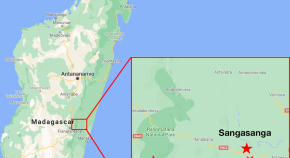Environmental DNA analysis confirms extant populations of the cryptic Irwin’s turtle within its historical range
Authors (first, second and last of 5)

Collection
Luke Jacobus is an Associate Professor of Biology at Indiana University Purdue University Columbus. Luke investigates various topics in environmental science, especially those related to freshwater insects and ecological sustainability. Freshwater insects have proven valuable for the analysis of environmental change in space & time, the application of phylogenetic models to problems in environmental toxicology, and the development of new identification systems, such as DNA barcoding.
Dr Luisa Orsini is an Associate Professor in Biosystems and Environmental Change at the University of Birmingham, UK. She uses multidisciplinary science to understand evolutionary processes and mechanisms that enable freshwater communities to persist in the face of human impact. Orsini applies high throughput sequencing technologies (genomics, transcriptomic, metabolomics, environmental DNA) to sedimentary archives of inland waters, which have the unique advantage of preserving biological and environmental signals temporally.
Dr Cyrpian Katongo is an Associate Professor at the University of Zambia. His research interests are in systematics, evolutionary biology, ecology, nutrition, breeding, conservation and sustainable resource management. Dr Katongo is currently undertaking a study of the fish diversity of the lower Zambezi escarpment using barcoding and eDNA methods.






